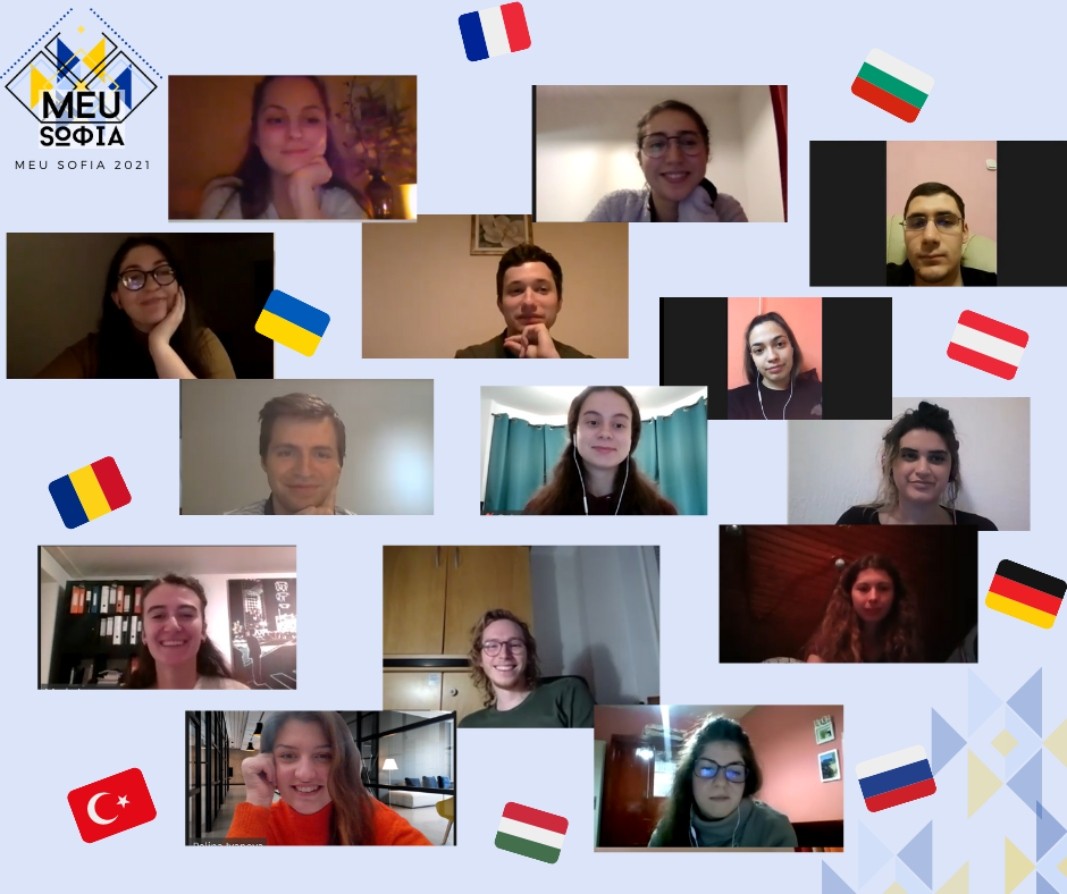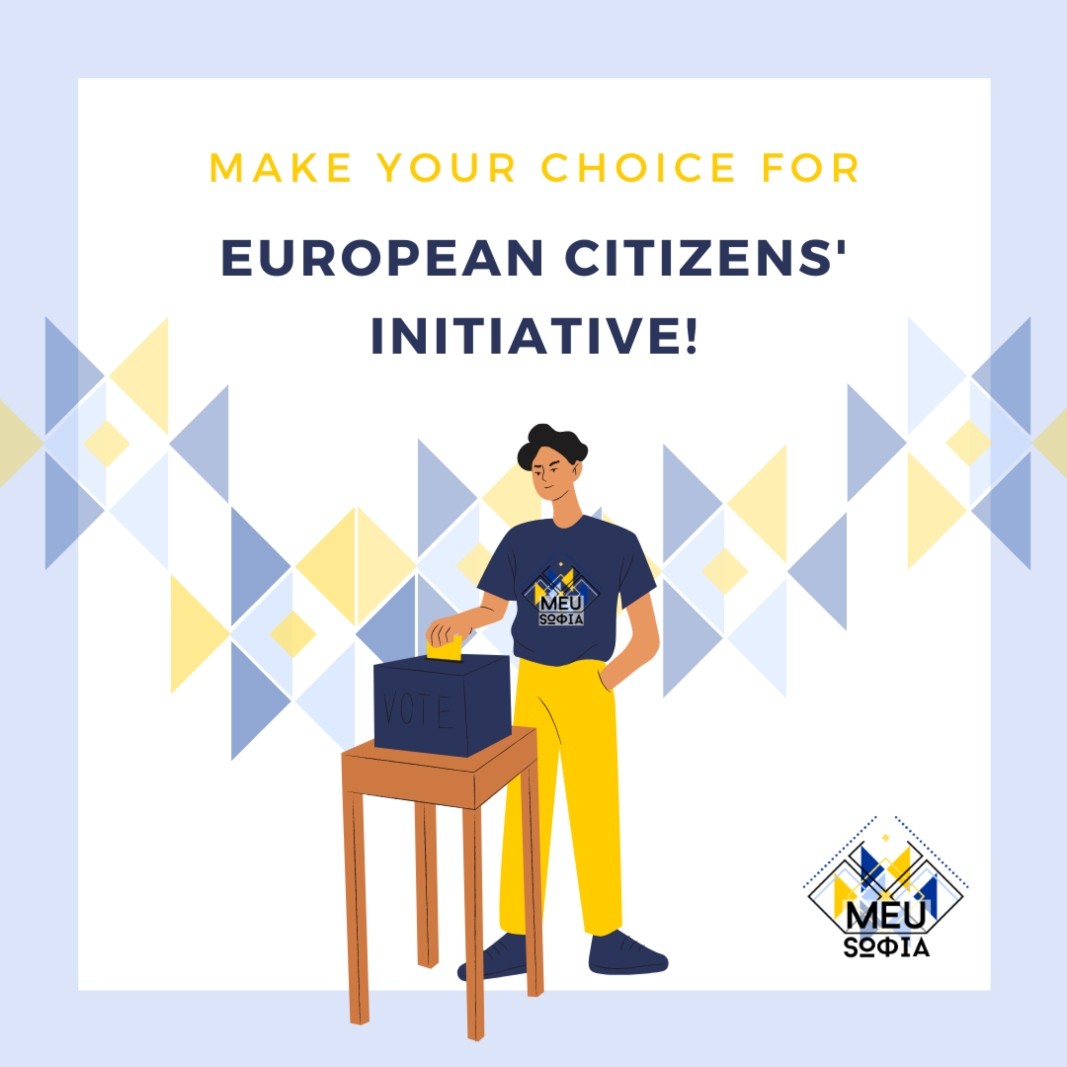What kind of society do we want to live in? What are the things we do not like in the world that surrounds us and how can we make it a better place? These are just some of the questions young people are asking in the project “Model European Union Sofia 2021” – the Bulgarian claimant for the European Charlemagne Youth Prize.
The European Parliament prize encourages young people aged 16 to 30 to develop projects and to actively participate in the development of contemporary Europe. The Bulgarian team which reached the final stage of the competition is headed by 22-year old Victoria Ruseva, a student of political science at the University of Vienna.
“First, it is an open educational platform for inter-cultural dialogue,” Victoria explains. “One of our principal aims, which we shall achieve together with people of 10 nationalities, is to popularize Bulgaria and the region. We are also planning a simulation of the decision-making process in the European Union and we shall be working together with students from three Bulgarian schools.”

The “Model European Union” project has existed since 2014 though this is the first time that it includes a simulation of the European citizens’ initiative – an instrument citizens can take part in with ideas regarding the European legislative process. Students from the professional Secondary School of Telecommunications Sofia, the Bertolt Brecht Foreign Language School and from the Hristo Botev Foreign Language School in Kurdzhali have developed proposals for their citizens’ initiatives.
“The three ideas which reached the voting stage on our website concern problems in society that are of interest to young people,” Victoria says. “One of them is connected with the regulation of the access and sale of nicotine-containing products to people under the age of 18. The second idea aims to provide young people with the necessary resources and through mentorship, to offer them career guidance. And the last proposal aims to help build a more open society on the subject of homosexualism.”
Voting for one of the three initiatives will be open until 6 May, and the award-winning project will be turned into a legislative proposal of the European Commission during a conference scheduled for October.

Here is Victoria’s answer to the question does civil society exist in Bulgaria:
“I think there exists a very good basis we can build upon. That was the important element during out discussions with the students – to demonstrate that young people are much better informed than the public think. But what they need is a platform to discuss their problems, to have their voice heard. That is what we have been trying to give them – a platform and a voice for their opinions, their criticism.”
The winner of the Charlemagne competition will be announced in September. “It doesn’t matter whether our project is going to win the prize,” Victoria says, and adds that the nomination itself is an acknowledgement that even in a pandemic, wonderful things can happen to so many people in the country but also in Europe. And that her Europe of tomorrow means awareness today. /The project on Facebook/
“To us Europe of the future is an active, a united continent, a Europe of enhanced awareness,” she says. “Because awareness is the first step towards a civically active, a better society because this is the only way we can be effective in the actions we take and achieve better things more quickly. And that is something that is extremely important especially in the situation we are now living in.”
Photos: courtesy of Victoria Ruseva
Guided by the idea of preserving the Bulgarian spirit, culture and language, with 35 years of experience as a Bulgarian teacher and having worked in different European countries, in 2017, Iliana Boyajieva Smith founded a Bulgarian school in..
President Rumen Radev was a guest at the Elhovo holiday and the celebration of 100 years since its declaration as a town, BTA reported. According to the head of state, the border town of Elhovo "is today a place with spirit and traditions, with..
Divers from Burgas' Friends of the Sea association opened the diving season . With the water temperature at seven degrees , they made their traditional spring dive along the coast of Kiten, where underwater remains include ancient artefacts and even a..
An international conference “AI and education: The road to innovative teaching and learning” brings together 50 teachers from the Bulgarian schools..
In 2024, Bulgaria has 15,737 foreign students, making up 8.6% of all current students in the country. By comparison, this share has doubled over the..
Divers will clean the seabed around the port of Sozopol today, reports BTA. "Since 2018, we have been doing the cleaning, completely voluntarily, with..

+359 2 9336 661
